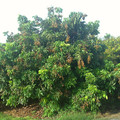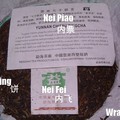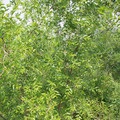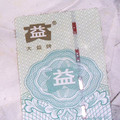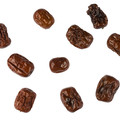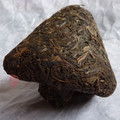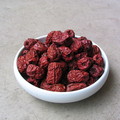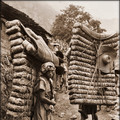To the village of ethnic minorities in Yunnan to visit the old tea tree
Lao Man'e: A Bulang Tea Village - Brian S. Kirbis
„ “

Video Tags: Pu-erh, China, Bulang, Tea production, Gushu
- Discussion: 0 comments
- Write a comment
Teas - Pu-erh
2007 Jingmai Qiao Mu “0502”
 1 review
1 reviewUse Jingmai mountain arbor (Qiao Mu) tea which picked before Grain Rain (mid-April) as...
2013 Chawangpu "Shuang Shu" Xiao Bing Cha
 1 review
1 reviewThis is the first time we made blending raw puer cake, so we took advice from a more...
2013 Chawangpu Bada Zhang Lang Xiao Bing
 1 review
1 reviewNicely processed and completely manually produced tea from Bada mountains. The tea is...
1997 CNNP Big Red Mark Raw Puerh Cake
 1 review
1 reviewThis cake is called "Da Hong Yin" or Big Red Mark. It's a blend from Banna area tea...
2009 Youleshan Tuo Cha Raw 100g
 1 review
1 reviewThis tuo is made of wild arbor sun-dried material from Youle mountain, also called...
Quotes - Pu-erh
„chui niu; 吹牛. 吹 - chui, to blow. 牛 - niu, cow, but in this case can be read as 公牛 or bull. An almost default aspect of tea drinking - 'shooting the bull'. The talk that often accompanies tea drinking and can be peppered with much knowledge, a little exaggeration and some humour. Also 吹牛皮. 皮 - skin or hide. 'Blowing the bulls hide.'“
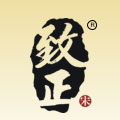
Quotes Tags: Teahouse, China, Experiencing tea, Pu-erh
Teas
2003 Xiaguan Jiaji Tuocha in box
 1 review
1 reviewClassic Xiaguan green box JiaJi tuocha is replenished! Xiaguan TF has been producing Jiaji Tuocha...
2012 Yunnan Sourcing "Qiu Yun" Wild Arbor Raw
 1 review
1 reviewLate autumn harvest tea from wild arbor tea trees (between 60 and 80 year old) growing in the area of Yi Bi...
Yiwu 1999 maocha
 1 review
1 reviewYiwu 1999 maocha is a well stored tea in Taiwan. Loose leaves, maocha, is not stored that much so that if...
Theme
Tea by region
We will help you with tea selection.
Do you like quality loose tea?
We will help you to find the right one for you. Be inspired by tea ratings of other tea lovers. Rating stars could help you.


Review your cup of tea.
Review the tea you are drinking and help other tea lovers to find the right cup of tea.



Quotes
„Smokiness
The art of making tea from ancient tea trees is very old. Hand-roasting is not easily mastered. Any slight error will influence the taste of the tea. Smokiness or yan wei is one example but it should be distinguished from a burned flavour which is described as hu wei. The latter, typically arises when tea is not well roasted and is, unfortunately, not uncommon. Yan wei or smokiness is caused by oven drying. “



 Shops
Shops Share on Facebook
Share on Facebook






